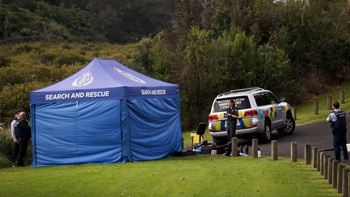A poultry virus is highly likely to be present at an Otago egg farm which is now under voluntary biosecurity controls.
Biosecurity New Zealand is managing the possible outbreak of Infectious Bursal Disease Virus type 1 at the Mainland Poultry egg farm in Waikouaiti.
The virus poses no risk to human health or the health of other animals, but can affect the health of infected chickens.
Testing of other South Island layer and meat chicken farms is underway.
In the meantime Biosecurity New Zealand has stopped issuing export certificates for the export of chicken products to countries which require New Zealand to be free of the virus.
Response manager David Yard said preliminary test results indicated the virus was highly likely to be present at the property, but further testing was required.
He told Andrew Dickens all countries we export poultry products to require certification it's disease-free of the disease.
"Given that we now have strong suspicions that we do have IBD, on a precautionary basis we can no longer continue to sign those certificates until we get conclusive results."
Further results are expected by mid-September.
No birds at the farm have disease symptoms and the property itself was under voluntary bio-security controls as a precautionary measure, Mr Yard said.
A second Mainland property, near the Waikouaiti facility, has returned suspect results, which were in the early stages of the confirmation process.
Departmental chief scientist Dr John Roche said the virus could affect the immune system of young chickens but posed no risk to human health or the health of other animals.
"There is no food safety risk with this virus and people should have no concern eating chicken meat or eggs. There will be no impact on domestic egg and chicken meat supply," Dr Roche said.
While Biosecurity New Zealand waited for the final confirmation from a overseas laboratory it would stop issuing certificates for the export of chicken products to countries that required a guarantee New Zealand was IBDV type 1 free, Mr Yard said.
That involved the trade in poultry meat and poultry products to four countries, with Australia being the largest importer of New Zealand chicken meat.
It was now working with the egg and poultry industries to understand the scale of the situation and what control or eradication measures were available.
It was reviewing operational measures at the farm to assess - if confirmed - present, the risk of spread to other sites.
IBDV type 1 was discovered in New Zealand in 1993.
An industry-led programme to eradicate meant New Zealand had been able to claim the absence of the disease.
Most other countries in the world have this virus and successfully managed it within the industry.
If the presence of the virus was confirmed, Biosecurity New Zealand investigators would investigate how it could have entered the country, exploring a range of possibilities including imported veterinary medicines, travelling farm workers and other imported goods.
Biosecurity New Zealand and the industry would work together to consider options to manage the situation, balancing the impacts of the disease if confirmed, against the costs and benefits of any control measures.
There are two different types of IBDV Types 1 and 2.
Type 2 is already in New Zealand and causes no significant health issues in the national flock and is of no trade concern.
The current suspect result is for Type 1.
Take your Radio, Podcasts and Music with you









